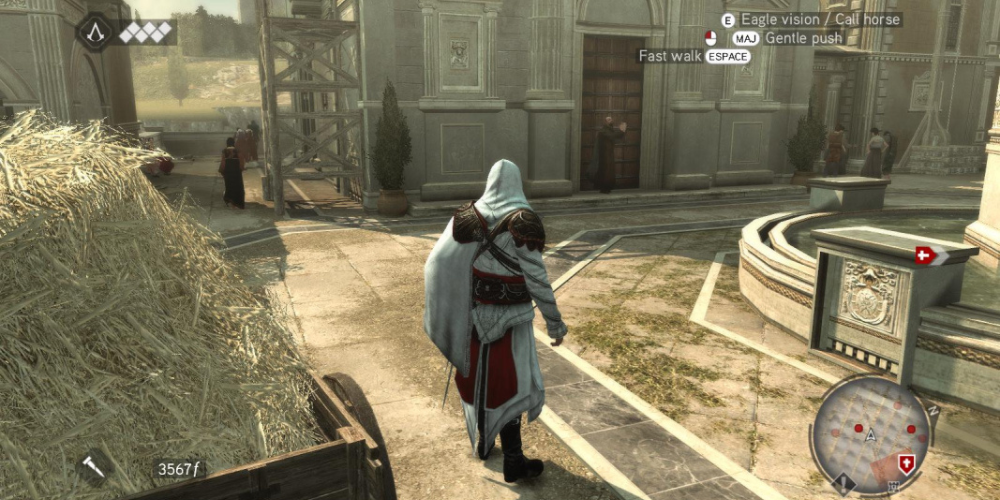
Creation and History
The "Assassin's Creed" series, developed and published by Ubisoft, first emerged in 2007. The original concept was devised as a sequel to the "Prince of Persia" series but soon evolved into an entirely new franchise. Leading the charge was Patrice Désilets, along with Jade Raymond and Corey May. The creative team aimed to blend historical fiction with open-world gameplay, allowing players to explore rich, dynamic environments. Over the years, the series has expanded significantly, introducing new characters, time periods, and gameplay mechanics, making it one of the most iconic and enduring franchises in the gaming industry.
Assassin's Creed (2007)
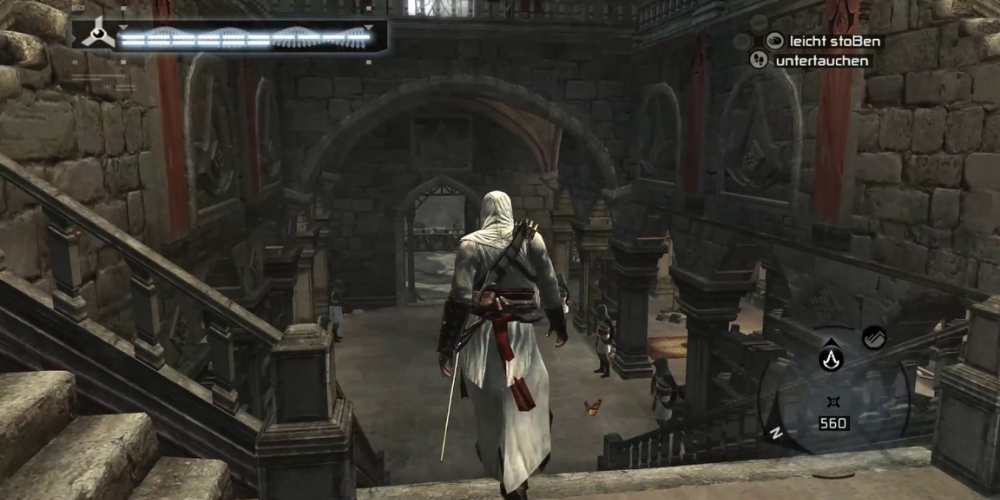
The inaugural game takes place during the Third Crusade in the Holy Land. Players step into the shoes of Altaïr Ibn-La'Ahad, a member of the Assassin Brotherhood. Tasked with eliminating key figures to bring an end to the ongoing conflict, Altaïr's journey is one of redemption and self-discovery.
The game introduced a revolutionary parkour movement that allowed players to seamlessly navigate the dense, richly detailed environments of cities like Jerusalem, Acre, and Damascus. The immersive environments were meticulously crafted, bringing the history and architecture of the period to life with striking realism. Additionally, the robust combat system set a new standard for the genre, blending strategic planning with fast-paced action.
With its compelling narrative, complex characters, and innovative gameplay mechanics, Assassin's Creed set the stage for future titles and established itself as a landmark in the world of video games.
Assassin's Creed II (2009)
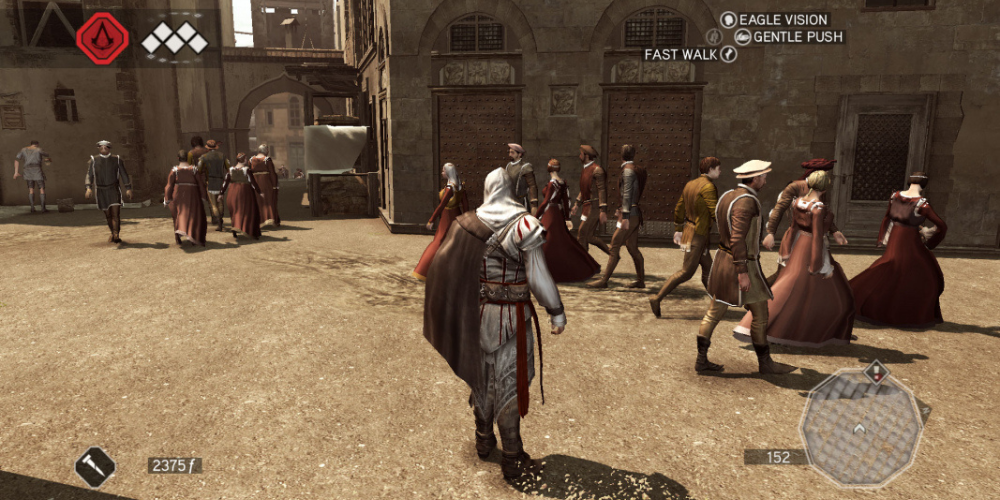
Set against the vibrant backdrop of the Italian Renaissance, the second installment of the acclaimed Assassin's Creed series introduces players to the compelling narrative of Ezio Auditore da Firenze. This sequel marked a significant evolution in the franchise, refining gameplay mechanics and weaving a richer tapestry of storytelling. Innovations such as a dynamic economy system, more intricate character customization options, and improved stealth actions contributed to an immersive gaming experience. Players could delve deeply into the world of Renaissance Italy, interacting with historical figures and engaging in a variety of activities that extended beyond mere combat.
Ezio's transformation from a carefree young noble into a determined and skilled master assassin resonated with many players, offering a nuanced protagonist whose personal journey unfolded through a series of gripping challenges and poignant moments. The game’s richly detailed environments, engaging quests, and robust narrative earned it widespread acclaim, cementing Assassin's Creed II as a beloved entry in the series and a benchmark for future titles.
Assassin's Creed: Brotherhood (2010)
The story continues with Ezio Auditore da Firenze, a Master Assassin, as he journeys to Rome to dismantle the oppressive control of the Borgia family. In "Brotherhood," players witness Ezio's transformation from a leader to a mentor as he builds and strengthens the Assassin Brotherhood. The game marked a significant evolution in the series, introducing for the first time a multiplayer mode that allowed players to experience the thrill of the hunt and the tension of being hunted.
This mode brought a new dimension to the Assassin's Creed franchise, offering a variety of characters and skills. Additionally, the city-building aspect was enhanced, giving players the responsibility of restoring Rome to its former glory by investing in various businesses and landmarks. Combat mechanics were refined to be more fluid and responsive, allowing for more dynamic encounters.
One of the standout features was the recruitment and training of new assassins, which added strategic depth to the gameplay. Players could send their recruits on missions across Europe to gain experience and resources, eventually bringing them into battle to aid Ezio. "Brotherhood" succeeded in expanding the narrative universe and gameplay mechanics, solidifying its place as a beloved entry in the Assassin's Creed series.
Assassin's Creed: Revelations (2011)
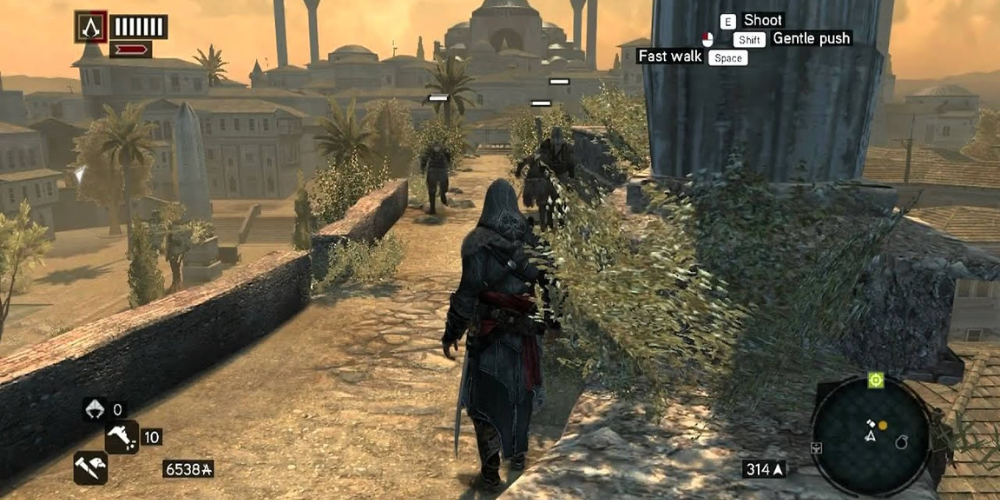
This game masterfully brings Ezio's story to a close while intertwining it with the life of Altaïr, providing a deeply engrossing narrative that spans multiple timelines. Set primarily in the rich and vibrant city of Constantinople, "Revelations" offers players an expansive and detailed environment to explore. The game introduced several new mechanics to the franchise, most notably bomb crafting, which allowed players to create various explosive devices tailored to different tactical needs.
Additionally, the series' renowned parkour mechanics were further refined and advanced, giving players more fluid and dynamic movement options across the cityscape. This title also deepened the lore of the Assassin's Creed universe, revealing more about the origins and destinies of both Ezio and Altaïr. With its improved gameplay mechanics, captivating story arcs, and historical intrigue, "Revelations" delivered a fitting and memorable conclusion to the sagas of these legendary assassins, cementing their places in the hearts of fans and the annals of gaming history.
Assassin's Creed III (2012)
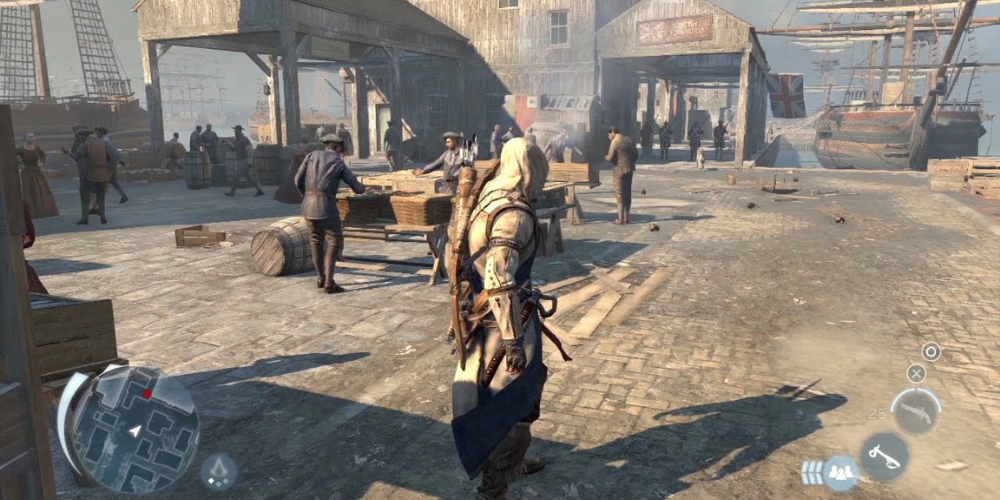
"Assassin's Creed III" dramatically shifts the historical setting to the tumultuous period of the American Revolution, introducing players to the protagonist Ratonhnhaké:ton, who is also known by his adopted name, Connor. This installment in the series stands out for incorporating a variety of gameplay mechanics that were new at the time for the franchise. One of the most significant additions is the inclusion of naval battles, offering players the thrilling experience of commanding a ship and engaging in maritime warfare.
The game also emphasizes extensive wilderness exploration, allowing players to traverse vast, untamed terrains from dense forests to sprawling frontier lands. These landscapes are brought to life with rich, detailed graphics and dynamic weather systems, providing an immersive experience that showcases the breathtaking natural beauty of the period.
Moreover, "Assassin's Creed III" represents the series' first steps into a new world setting, departing from the predominantly European locales of previous games. This change introduces fresh architectural styles, diverse environments, and a unique cultural backdrop that enriches the overall narrative experience. The story weaves historical events and figures into its fabric, allowing players to participate in iconic moments of the Revolution alongside legendary figures such as George Washington and Benjamin Franklin.
On another important note, this game brings closure to the modern-day storyline of Desmond Miles, a character whose journey has been a central thread through the Assassin's Creed series up to this point. Desmond's story reaches its climax, intertwining with the historical narrative and adding layers of depth and tension to the overarching plot. This dual perspective—balancing historical intrigue with contemporary urgency—heightens the player's engagement, drawing them deeper into the epic saga of assassins versus templars.
Overall, "Assassin's Creed III" offers a multifaceted gaming experience that combines action, strategy, and storytelling against the backdrop of one of the most pivotal eras in history. It reflects the continued evolution of the franchise, pushing the boundaries of what players can expect from an Assassin's Creed game.
Assassin's Creed IV: Black Flag (2013)
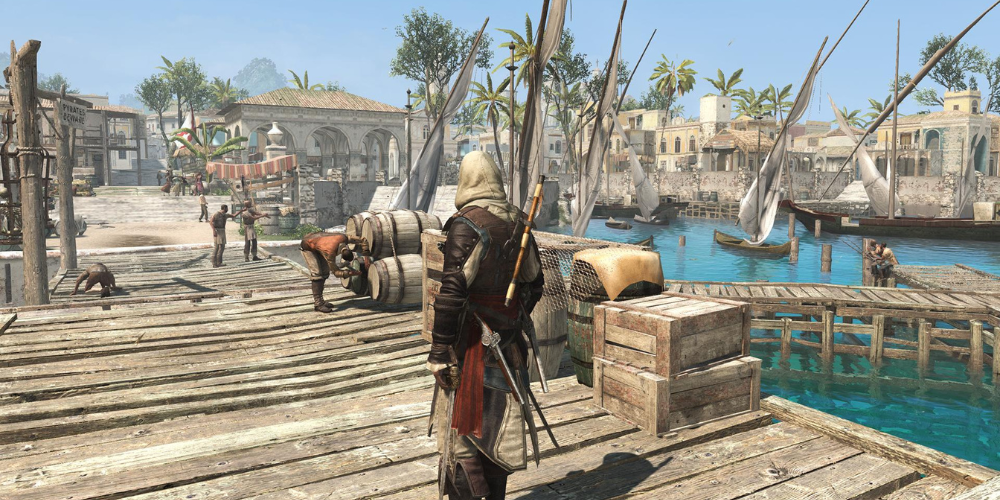
This installment dives into the Golden Age of Piracy, featuring Edward Kenway. The game redefined the series with its emphasis on naval exploration, ship battles, and a vast open-world environment that spans islands, coastal towns, and the Caribbean Sea. Players are immersed in a rich narrative that not only covers the high seas but also delves into the complexities of pirate life. Engaging in treasure hunts, underwater explorations, and dynamic weather systems adds layers of excitement and realism to the gameplay.
The protagonist, Edward Kenway, a charismatic pirate with a complex moral compass, navigates through a world filled with intriguing characters and historical figures, making alliances and rivalries that shape the course of his journey. Enhanced with detailed graphics and immersive soundscapes, Black Flag offers a comprehensive experience of the pirate era, balancing traditional Assassin's Creed stealth and combat mechanics with fresh, innovative features. The game's integration of both land and sea elements bridges new gameplay dynamics, ensuring an engaging and varied experience for players.
Assassin's Creed: Unity (2014)
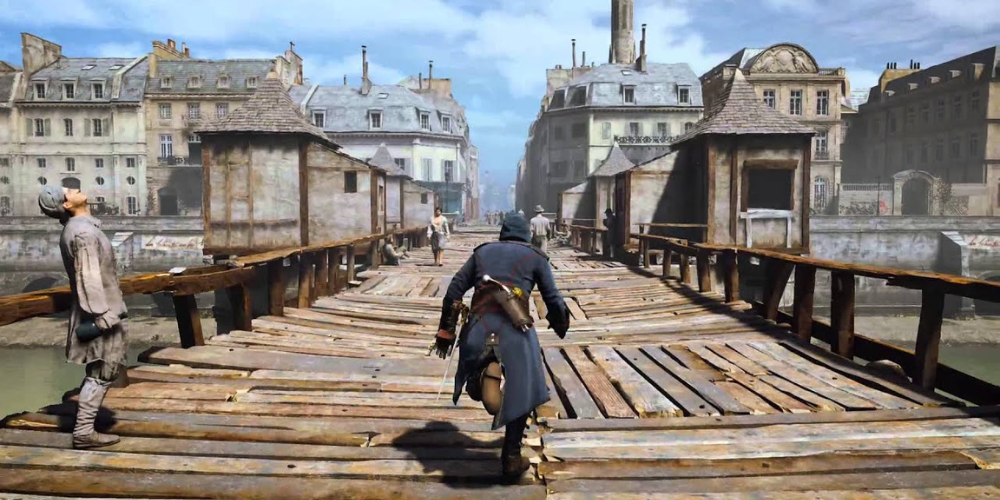
Set against the tumultuous backdrop of the French Revolution, "Unity" weaves a captivating tale centered on Arno Dorian, a new protagonist in the Assassin's Creed series. The game makes significant strides in graphical fidelity, presenting players with a breathtakingly detailed and immersive representation of 18th-century Paris.
The cobblestone streets, towering cathedrals, and lively crowd scenes all contribute to an impressively atmospheric experience. One of the standout features of "Unity" is the introduction of cooperative multiplayer gameplay, a first for the franchise, which allows players to band together to complete missions, adding a novel layer of strategy and interaction. Despite facing initial backlash due to various technical issues and bugs at launch, "Unity" has been patched extensively, ultimately delivering a richly detailed and engaging exploration of revolution-era Paris.
The game's ambitious scope and innovative gameplay features make it a memorable and significant entry in the Assassin's Creed series, offering both fans and newcomers a chance to immerse themselves in a pivotal period of history through the eyes of an Assassin.
Assassin's Creed: Syndicate (2015)

This game introduces twins Jacob and Evie Frye, who navigate the bustling streets of Victorian London during the Industrial Revolution. The narrative is enriched by their distinct personalities and contrasting approaches to missions. Jacob is more brash and combative, while Evie is strategic and stealthy. These differences are highlighted through the game's innovative fighting mechanics, which offer a fresh experience from previous installments.
Furthermore, the game allows players to immerse themselves in the historical setting by undertaking various side missions and activities. One notable feature is the ability to build and manage a criminal empire, which not only offers a unique layer to the gameplay but also requires players to think strategically about their resources and alliances. This multifaceted approach ensures that "Assassin's Creed: Syndicate" provides a rich and engaging experience for both longtime fans and newcomers to the series.
Assassin's Creed Origins (2017)
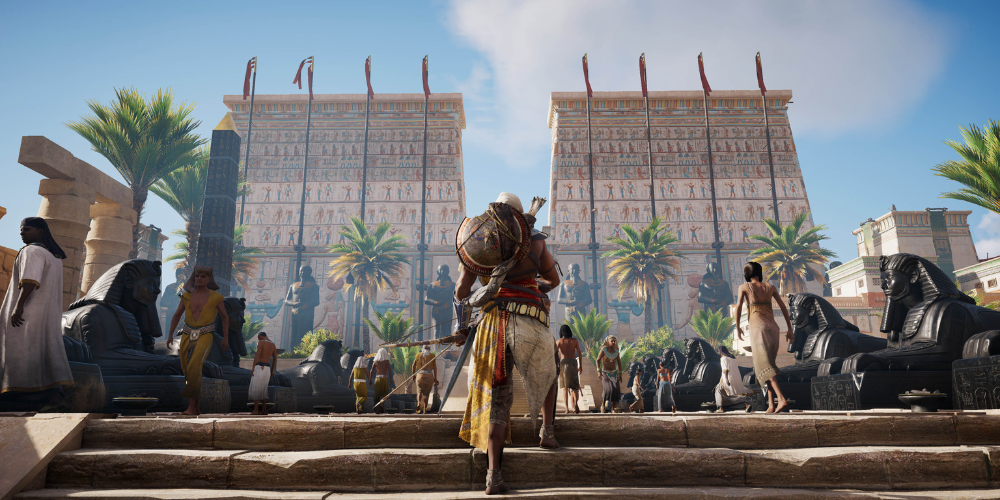
Returning to the majestic landscapes and historical expanses of ancient Egypt, "Assassin's Creed Origins" delves into the rich and intricate world of the Ptolemaic period. At the heart of this immersive narrative is Bayek of Siwa, a dedicated Medjay whose personal quest for vengeance sets the foundation for much larger, history-altering events. His journey is driven by a deep sense of justice and duty, pushing him through a web of political intrigue, ancient traditions, and formidable adversaries.
As Bayek's saga unfolds, it becomes clear that his struggles and sacrifices are pivotal in the establishment of the Assassin Brotherhood, a clandestine organization devoted to preserving freedom and resisting tyranny. This installment introduces a bold new direction for the franchise, significantly overhauling its combat mechanics to be more fluid and dynamic. Gone are the rigid, pre-set encounters; instead, players can enjoy a variety of combat styles and approaches tailored to their personal preferences.
Additionally, "Origins" integrates RPG elements, including comprehensive skill trees that allow players to customize Bayek’s abilities and playstyle, as well as complex loot systems that bring depth and variability to gameplay. These enhancements not only enrich the player's experience but also provide greater control and personalization, ensuring that each journey through ancient Egypt is unique and engaging.
Assassin's Creed Odyssey (2018)
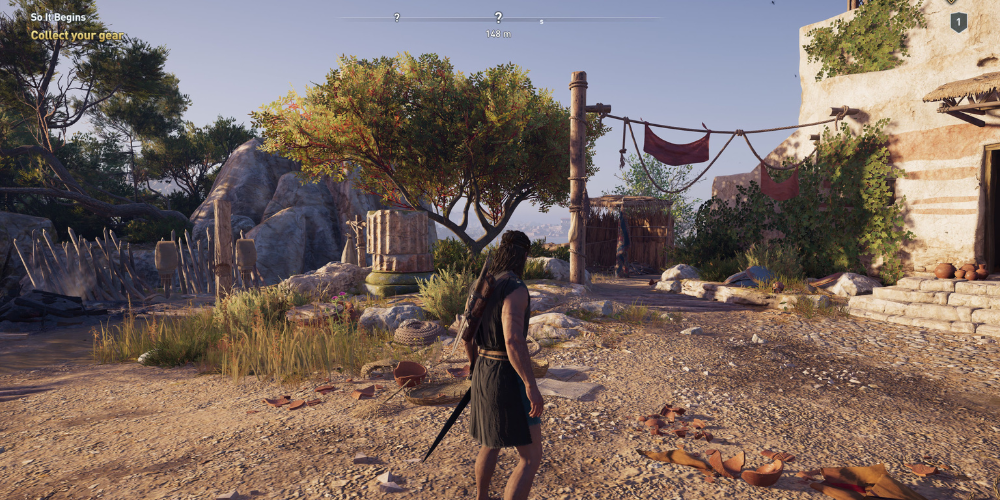
The narrative of "Assassin's Creed Odyssey" is set during the tumultuous period of the Peloponnesian War, a time fraught with conflict between Athens and Sparta. Players are given the choice to step into the sandals of either Alexios or Kassandra, both of whom are descendants of the legendary Spartan warrior King Leonidas.
This lineage grants them not only formidable combat prowess but also a deep connection to the rich history and mythos of ancient Greece. Building upon the RPG elements that were introduced in "Assassin's Creed Origins," "Odyssey" greatly expands the role-playing experience. Players are presented with branching dialogues that influence the direction of the story and ultimately lead to multiple possible endings.
These choices allow for a highly personalized and immersive gameplay experience, where every decision can significantly alter the course of events and relationships within the game world. The game also features an expansive open world, vibrant with the culture, architecture, and landscapes of ancient Greece, inviting players to explore its many secrets and engage in various side quests and activities.
Assassin's Creed Valhalla (2020)
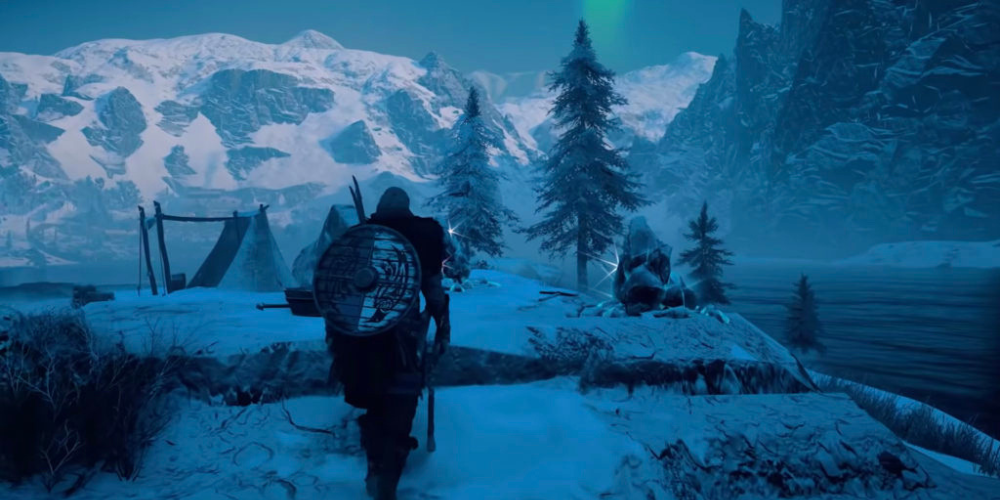
This game immerses players deep into the rich and turbulent Viking era, where they assume the role of Eivor Varinsdottir, a fierce and valiant Viking raider. "Valhalla" goes beyond the basic mechanics of previous installments by adding a dynamic settlement-building feature, which allows players to grow and develop their own communities.
Furthermore, it introduces exhilarating raid activities on various English territories, which are both strategic and intensely thrilling. The game also offers more profound RPG customization options, enabling players to tailor their characters and combat styles to their liking. In addition, the narrative deeply intertwines with Norse mythology, presenting an engaging storyline filled with legendary gods and mythical creatures. The gripping tale of the Viking invasion of England is brought to life with breathtaking graphics and an expansive open world teeming with historical and fantastical elements.
Prospects for Development
The future of the "Assassin's Creed" series appears promising with Ubisoft's commitment to innovation and expansion. Upcoming projects such as "Assassin's Creed Infinity" aim to create a live service platform, potentially blending multiple historical settings and offering a connected, evolving experience for players. Additionally, the franchise may explore new frontiers with possible film adaptations, VR experiences, and further experiments with multiplayer dynamics.
Summary
The "Assassin's Creed" series has carved out a unique niche in the gaming world, blending rich historical narratives with engaging gameplay mechanics. From the Holy Land of the Third Crusade to the Viking Age, each installment has expanded the franchise's lore and gameplay possibilities. With a robust future ahead and constant innovations, "Assassin's Creed" continues to captivate players worldwide, remaining an integral part of the gaming landscape.



